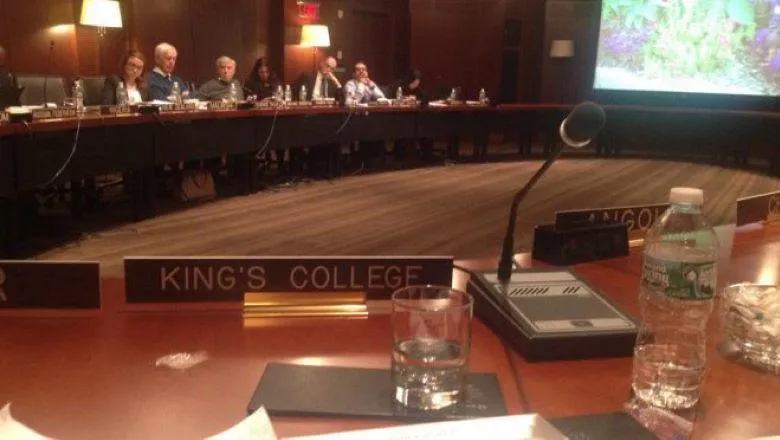15 October 2015
Alpha's work to support UNSCR 1540
In April 2004, the United Nations Security Council voted to adopt UN Resolution 1540 on the non-proliferation of weapons of mass destruction. It requires UN member states to take a wide range of activities to prevent non-state actor involvement in proliferation, including through the maintenance of export controls.

The Security Council passed resolution 1540 in 2004 in the aftermath of a number of important proliferation developments, including the AQ Khan network and the evolution in terrorist tactics demonstrated by the 9/11 attacks.
UNSCR 1540 legally requires states to develop and implement systems of controls on the export of sensitive goods that could have a use in a WMD program; it universalized and formalized the requirement that states address a broader non-proliferation agenda, which includes the financing of proliferation and transportation of goods to illicit programs.
The resolution also highlights the role that the private sector can play in countering the proliferation of weapons of mass destruction. It calls upon states to ‘develop appropriate ways to work with and inform industry and the public regarding their obligations under such laws.’
UNSCR 1977 was the follow to 1540, which extended the mandate of the 1540 committee; set up to monitor its implementation around the world. It encourages the 1540 Committee, at its discretion; to draw also on relevant expertise, including civil society and the private sector.
Project Alpha is committed to supporting implementation of the resolution. The Project’s 1540-related work includes the hosting of events, the publication of research, and the development of tools.
Specific recent activities include:
- Publication of articles concerning the 10th anniversary
- Holding of an event on effective practices for the implementation of UNSCR 1540: Alpha along with the Indian Institute for Defense Studies and Analyses civil society conference on UNSCR 1540 in Delhi on the 23rd and 24th of February 2014 for the purpose of learning lessons from the resolution’s first decade. The workshop was sponsored by the UN’s Office of Disarmament Affairs (UNODA) and sought to identify ‘effective practices’.
- Included briefing to committee
- Project Alpha head, Ian J Stewart, briefed the UN Security Council 1540 Committee on a recent report that he and Dr Rajiv Nayan of IDSA authored on the subject of effective practices for the implementation of UNSCR 1540. (A summary of his remarks can be found here along with the full report)
- Holding of two events on the 5th and 6th of November 2014 in London. This first, “1540 Ten Years On: Challenges and Opportunities”, was cohosted by Alpha and Chatham House and focus on challenges and opportunities for the implementation of 1540 into the resolution’s second decade. It also provided an opportunity to continue the discussion on the role of civil society in supporting national and international efforts to implement resolution. The second event “Controlling Proliferation: Intangible Technology Transfer. And Balancing Non‐proliferationand Academic Freedom: A Role for UNSCR 1540?” explored mechanisms and practices to effectively implement the requirements of the resolution while minimizing the impact on legitimate academic inquiry and activity. Both events will be supported by the British Foreign and Commonwealth Office, and held in cooperation with UNODA and Chatham House.
- Attending various 1540 events and Committee meetings / briefings. This included the 2016 open consultations and an informal meeting of the Committee at the UN’s Greentree retreat (pictured)
Ongoing initiatives
- Creation of a civil society crowdsourcing tool on the 1540 matrices. In order to solve the current problem of insufficient understanding of how 1540 is being implemented at the national level, Alpha commissioned development of a 1540 implementation monitoring tool. In many countries and regions around the world elements of civil society has experience in working on 1540 implementation. Civil society also has linguistic capabilities and other local understanding that may not be available to the group of experts. In short, civil society is well placed to help to build an understanding of 1540 implementation. It is proposed that relevant civil society organizations be asked to contribute to the maintenance of the tool – an online database containing the 1540 matrix questions.
